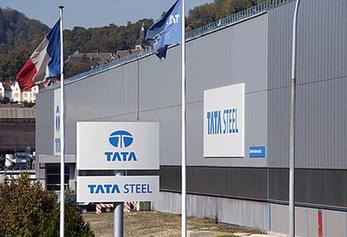
Investments by Indian companies in foreign countries have risen sharply as they look for newer markets and resources to fuel a growing economy.
For nearly 150 years, Harrisons Malayalam has grown rubber and tea on massive plantations in the southern Indian states of Tamil Nadu and Kerala. But Managing Director Pankaj Kapoor says that despite the growing demand for both commodities, the company cannot develop new land in India.
"To get land, say 10,000 hectares of land at one place, whichever be the state, is next to impossible, it's not available," noted Kapoor.
The company now plans to invest millions of dollars to develop rubber plantations in Africa.
Kapoor says they have scouted for land in countries like Ethiopia and Ghana.
"It's good to get the land in African countries, because the governments are very keen to get the investors overseas, they have large land, unutilized," Kapoor added. "We can bring in the technology and we can bring in the money."
Harrisons Malayalam is just one of scores of Indian companies which are pushing overseas in search of resources such as land and coal, newer markets, or technology.
Between April 2010 and March 2011 Indian companies invested nearly $44 billion overseas, more than double the previous year.
They have gone to Africa, Asia, Europe and Australia in sectors ranging from farming, pharmaceuticals and energy, to telecommunications and infrastructure. D.K. Joshi, chief economist at the Crisil consulting firm in Mumbai, says the growing investments are driven by several factors.
"Indian corporates have been cash rich and on top of that the foreign exchange regulations were liberalized so that allowed Indians to go out," Joshi noted. "The valuations of foreign companies after the global financial crisis, they were pretty good, so it made sense to go out and acquire companies to expand the global footprint."
The overseas investors include some of India's biggest groups, including: Reliance Industries, the Tata conglomerate, the Essar Group and Bharti Airtel. The Tata conglomerate now earns more than half its revenues overseas.
Chandrajit Banerjee, who heads the Confederation of Indian Industry, says Indian companies have become increasingly confident as they have grown in scale and size since India liberalized its economy two decades ago.
"They became ambitious, their aspiration levels went up, and therefore they started looking offshore," said Banerjee. "Indian industry has today become much more competitive and therefore they are being able to acquire, they are able to match technology, they are able to export, they are able to invest."
Economists also say that as decision-making slows down in India in the wake of high profile corruption scandals, many businesses prefer to invest in what they call more "predictable" markets. A survey by the Federation of Indian Chambers of Commerce and Industry suggests that business confidence in India has plunged due to high interest rates, frustration with governance and problems with issues such as land acquisition.
However, economist Joshi warns that the pace of overseas investments may slow down in the coming months due to concerns of another recession in Western countries.
"I think the companies will try to preserve cash, because their margins are already coming under pressure, and I think there is also a fear that if the global economy crashes again, then I think there will be a credit freeze and you will require money," Joshi added. "So everybody is in a cautious mode right now, so they are likely to go a bit slow in their global acquisitions unless the dust settles on the global environment once again."
Meanwhile, the government says it wants to speed up the pace of economic reforms in such areas as labor laws and land acquisition to encourage Indian companies to invest more money at home.
Foreigners leave as nuke warnings mount
GM to adapt China vans for India
India getting nervous over stalled monsoon
India's economy grows at fastest pace since global financial crisis
(来源:VOA 编辑:Rosy)
